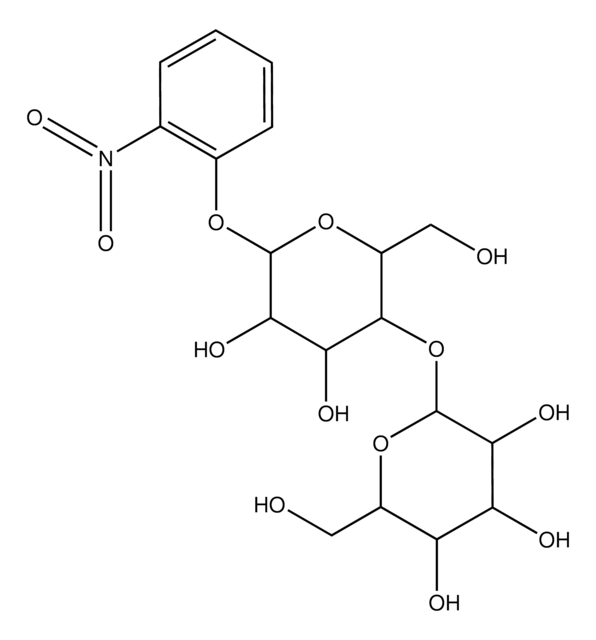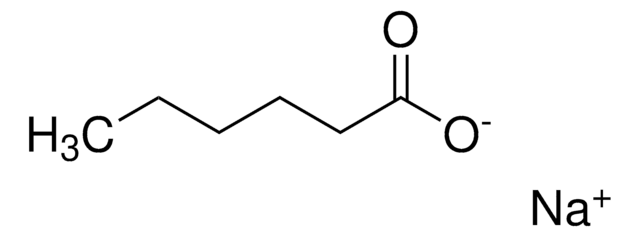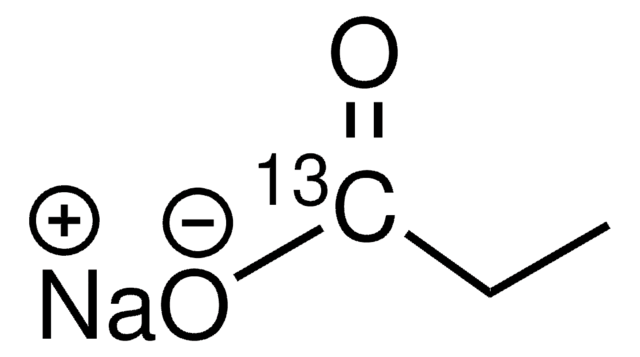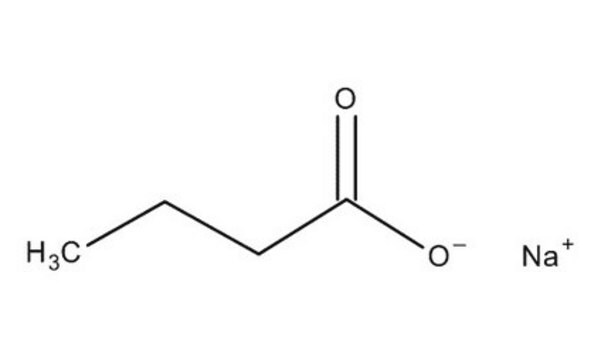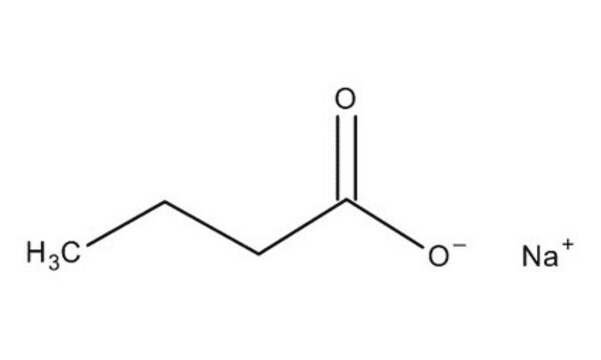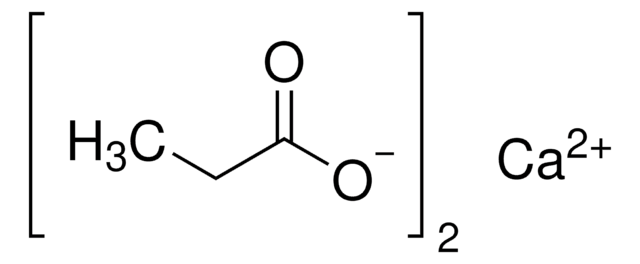P1880
Sodium propionate
≥99.0%
Synonym(s):
Propionic acid sodium salt
About This Item
Recommended Products
Quality Level
Assay
≥99.0%
form
powder
mp
285-286 °C (lit.)
solubility
H2O: 5 g/5mL
lipid type
unsaturated FAs
SMILES string
[Na+].CCC([O-])=O
InChI
1S/C3H6O2.Na/c1-2-3(4)5;/h2H2,1H3,(H,4,5);/q;+1/p-1
InChI key
JXKPEJDQGNYQSM-UHFFFAOYSA-M
Looking for similar products? Visit Product Comparison Guide
General description
Application
Storage Class Code
11 - Combustible Solids
WGK
WGK 1
Flash Point(F)
Not applicable
Flash Point(C)
Not applicable
Personal Protective Equipment
Certificates of Analysis (COA)
Search for Certificates of Analysis (COA) by entering the products Lot/Batch Number. Lot and Batch Numbers can be found on a product’s label following the words ‘Lot’ or ‘Batch’.
Already Own This Product?
Find documentation for the products that you have recently purchased in the Document Library.
Customers Also Viewed
Our team of scientists has experience in all areas of research including Life Science, Material Science, Chemical Synthesis, Chromatography, Analytical and many others.
Contact Technical Service



